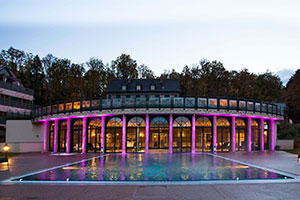
Discover all the “Friends of the Violets” evenings of 2025!
The Hotel and Spa Les Violettes**** invites you to its theme nights every first Thursday of the month! Discover without further delay our program for
In Alsace, Easter is considered the most important holiday of the year after CHRISTMAS. Solidly rooted in the Alsatian tradition, Easter is the unmissable event of spring.
The fact will have escaped no one: every year, Easter falls on a long weekend. We offer you a little informative tour on the question: What is Easter? What is the meaning of eggs? Who is this bunny? Why do Alsatians have an extra holiday?
As we know, Easter is above all an important religious holiday among Christians. This year, Easter falls on Sunday, April 1. For most people, it is above all an opportunity to take advantage of a few days off, and to go on a long weekend.
It is legitimate to ask the question: Why does Easter never fall on the same day, or even the same month? It’s a bit like celebrating Christmas once in January, another time in December…
Easter Sunday, however, symbolizes the resurrection of Jesus. Could that mean he was resurrected on a random Sunday? No. The explanation is very simple: Easter is celebrated on the first Sunday which follows or falls at the same time as the first full moon of spring, hence the fluctuations of dates on the calendar.
Another question that interests the rest of France: Why do we have one more public holiday on Fridays, in Alsace-Moselle? It is thanks to a German tradition that comes to us from the time when Alsace belonged to Germany, following the defeat of 1870. Thanks to the imperial order of August 16, 1892, the Alsatians and Mosellens have retained certain singularities of the German regime, including Karfreitag, Good Friday or St Etienne, also a public holiday in Alsace-Moselle.
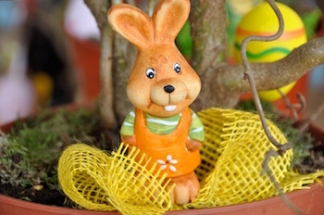
In Alsace, it is not the bells that return from Rome, but the Easter hare (Osterhase in German) that distributes or hides the Easter eggs.
The children make Easter nests which they set up in the garden, so that on Easter night the bunny will stop and fill the nests with chocolate eggs.
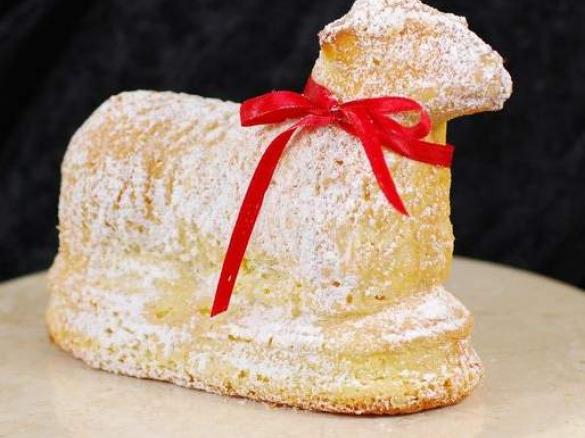
The Lamele, Lammele, Lamala or even Osterlammele symbolizes the paschal lamb in biscuit eaten at breakfast on Easter morning.
Traditionally, Alsatian pastry chefs cook the Lammele in Lamb Pascal moulds, then sprinkle them with icing sugar and usually decorate them with a small flag in the colors of Alsace or their city.
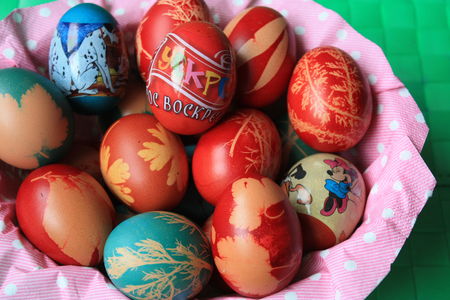
The custom of offering eggs comes to us from antiquity, in pagan traditions. The Persians, Romans and Egyptians celebrated the return of spring, the season of nature’s renewal, by offering painted and decorated eggs.
During Lent, the consumption of eggs, like that of dairy products and meat, was prohibited by the Church in the 3rd century. If this measure was lifted in the 16th century by the Vatican, it remained largely followed by the population. And as the hens continued to lay during Lent, and at the end of the fast, the eggs abounded on the tables. Eating eggs at Easter therefore symbolizes the end of deprivation.

In Alsace and Lorraine, the bells no longer ring during Holy Week. Indeed, in the tradition, they make a stay in Rome.
As a result, they are replaced by the children of the village, often the mass servers, who pass through the streets with rattles and sing to announce the religious services.
In the morning at 7 a.m. they announce the Angelus, at noon they wish a good appetite, and in the evening at 7 p.m. the Angelus again.
This tradition, which dates from the Middle Ages, is no longer practiced, nevertheless it continues in some villages; the children also come to collect.
Happy Easter to all, in tradition and in a good mood!!!

The Hotel and Spa Les Violettes**** invites you to its theme nights every first Thursday of the month! Discover without further delay our program for
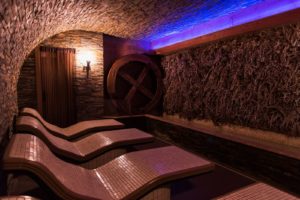
Spa Weekend Alsace : Hotel & Spa Les Violettes Spend a dream weekend in a hotel and spa housed in an exceptional setting in Alsace.

The history of the spa through the ages Humans all over the world have always known how to use the therapeutic virtues of hot water.
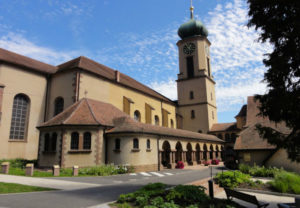
The Basilica of Our Lady of Thierenbach At 355 m altitude, two steps from the hotel “les violettes” and the farm of the monks, stands
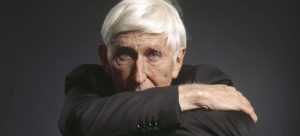
Tomi ungerer, godfather of violets Renowned as one of the most talented designers of his generation, since 1957 he has had an international career in

Que faire aux alentours de l’hôtel les violettes ? De nombreux lieux culturels, historiques et de loisirs se situent à proximité de l’hôtel “Les Violettes”